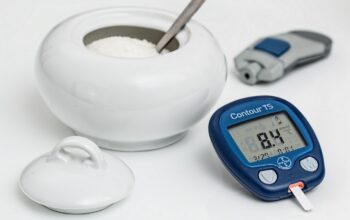Chronic Pelvic Pain Syndrome (CPPS) is a condition characterized by persistent and recurrent pain in the pelvic region. CPPS can be a source of significant discomfort and distress. In this article, we will explore what CPPS is, its potential causes and symptoms, and how it can be diagnosed and treated in men.
What is CPPS?
CPPS is a type of pelvic pain for males that persists for more than three to six months. It is also known as Chronic Prostatitis/Chronic Pelvic Pain Syndrome (CP/CPPS), and is often used interchangeably with the term “prostatitis.” However, CPPS is not the same as acute bacterial prostatitis, which is caused by a bacterial infection and can be treated with antibiotics. The exact causes of CPPS are not fully understood, but it is believed to be a complex condition that involves multiple factors.
Symptoms of CPPS in Men
Chronic pelvic pain syndrome symptoms in males can vary from person to person, and may come and go over time. Some of the most common symptoms of CPPS in men include:
Pelvic pain: This is the most common symptom of CPPS, and may be described as a dull ache, pressure, or discomfort in the pelvic region. The pain may be constant, or may come and go.
Pain during ejaculation: Men with CPPS may experience pain or discomfort during ejaculation.
Pain during urination: Some men with CPPS may experience pain or discomfort during urination.
Urinary frequency and urgency: Men with CPPS may feel the need to urinate frequently, and may have a sense of urgency to urinate even when the bladder is not full.
Erectile dysfunction: Men with CPPS may experience difficulty achieving or maintaining an erection.
Blood in semen: Some men with CPPS may notice blood in their semen.
Pain in the lower back, groin, or thighs: Men with CPPS may experience pain or discomfort in these areas.
Fatigue: Men with CPPS may experience fatigue and low energy levels.
Anxiety and depression: The chronic pain and discomfort associated with CPPS can cause anxiety and depression in some men.
Potential Causes of CPPS in Men
The exact causes of chronic pelvic pain syndrome in men are not fully understood, but several factors may contribute to the development of the condition. These factors may include inflammation, nerve damage, muscle tension, and psychological factors such as stress and anxiety.
Inflammation: Inflammation of the prostate gland, bladder, or urethra may contribute to the development of CPPS. However, not all men with CPPS have evidence of inflammation.
Nerve damage: Damage to the nerves that supply the pelvic region may contribute to the development of CPPS. This may be due to injury, surgery, or other causes.
Muscle tension: Increased muscle tension in the pelvic floor muscles may contribute to the development of CPPS. This may be due to stress, anxiety, or other factors.
Psychological factors: Stress, anxiety, and depression may contribute to the development of CPPS. These factors may increase muscle tension and trigger the release of inflammatory chemicals.
Trauma: Physical trauma to the pelvic region may contribute to the development of CPPS.
Diagnosing CPPS in Men
Diagnosing chronic pelvic pain syndrome in men can be challenging, as there is no single test or procedure that can definitively diagnose the condition. Your doctor will likely begin by taking a detailed medical history and performing a physical exam. During the exam, your doctor may perform a digital rectal exam (DRE) in which they insert a lubricated, gloved finger into the rectum to examine the prostate gland. Your doctor may also order tests to rule out other conditions, such as an infection or prostate cancer. These tests may include:
Urinalysis: This test can detect the presence of bacteria or other abnormalities in the urine.
Prostate-specific antigen (PSA) test: This blood test gauges the PSA concentration. Elevated levels of PSA may indicate an enlarged prostate or prostate cancer, but may also be a sign of CPPS.
Transrectal ultrasound: In this imaging procedure, the prostate gland can be seen using sound waves. It can help to identify any abnormalities, such as an enlarged prostate or tumors.
If your doctor suspects that you have CPPS, they may refer you to a specialist, such as a urologist or pain management specialist, for further evaluation and treatment.
Treating CPPS in Men
Chronic pelvic pain syndrome treatment in men is typically aimed at managing the symptoms and improving quality of life. There is no straightforward cure for CPPS, but several treatment options may be effective in reducing pain and discomfort. These may include:
Pain medication: Over-the-counter pain relievers, such as acetaminophen or ibuprofen, may help to relieve mild to moderate pain associated with CPPS.
Alpha-blockers: Drugs like these, ease the muscles of the prostate and bladder neck, which can help to improve urine flow and reduce pain.
Muscle relaxants: These medications can help to reduce muscle tension in the pelvic floor muscles, which may contribute to CPPS.
Physical therapy: Pelvic floor physical therapy can help to reduce muscle tension and improve bladder and bowel function. Your therapist may teach you exercises to strengthen and relax the pelvic floor muscles, as well as techniques to improve posture and breathing.
Behavioral therapy: Cognitive-behavioral therapy (CBT) can help to reduce stress and anxiety, which may contribute to CPPS. Your therapist may teach you techniques to manage stress and anxiety, as well as strategies to cope with pain.
Prostate massage: Some men with CPPS may benefit from regular prostate massage, which can help to improve blood flow and reduce inflammation in the prostate gland.
Acupuncture: Acupuncture may help to reduce pain and improve bladder and bowel function in some men with CPPS.
Shockwave therapy: Shockwave therapy has been shown to be a successful treatment for non-bacterial chronic pelvic pain syndrome, with many patients claiming great alleviation from their symptoms. Shockwave therapy for non-bacterial CPPS reduces pain and inflammation by promoting blood flow and healing in the affected region. Additionally, shockwave treatment has been shown to improve muscular function and decrease muscle tension, both of which can aid with non-bacterial CPPS symptoms.
EMTT therapy: Extracorporeal magnetotransduction therapy (EMTT) has been shown to significantly improve men’s sexual health issues, including non-bacterial CPPS. EMTT was originally developed to treat musculoskeletal pain and other illnesses.
Lifestyle changes: Making lifestyle changes, such as reducing stress, staying hydrated, and avoiding bladder irritants (such as caffeine and alcohol), may help to reduce symptoms of CPPS.
In some cases, surgery may be necessary to treat CPPS. However, surgery is typically reserved for men with severe, refractory symptoms that have not responded to other treatments.
Conclusion
Chronic pelvic pain syndrome is a complex condition that can cause significant pain and discomfort in men. While the exact causes of CPPS are not fully understood, several factors, including inflammation, nerve damage, muscle tension, and psychological factors, may contribute to the development of the condition. Diagnosing CPPS can be challenging, as there is no single test or procedure that can definitively diagnose the condition. Treatment for CPPS is typically aimed at managing the symptoms and improving quality of life, and may include pain medication, alpha-blockers, muscle relaxants, physical therapy, behavioral therapy, prostate massage, acupuncture, lifestyle changes, shockwave therapy and EMTT therapy for non-bacterial CPPS. If you are experiencing symptoms of CPPS, it is important to talk to your doctor, who can help you to develop a personalized treatment plan. If you are looking for non-invasive treatments for non-bacterial CPPS, shockwave therapy could be a great option. And the best clinic to offer such therapy in the entire Europe, is Shockwave Clinics Ltd. Shockwave Clinics also provide treatments like EMTT, Tesla Chair and NanoVi in order to cure CPPS and other sexual issues in men.




